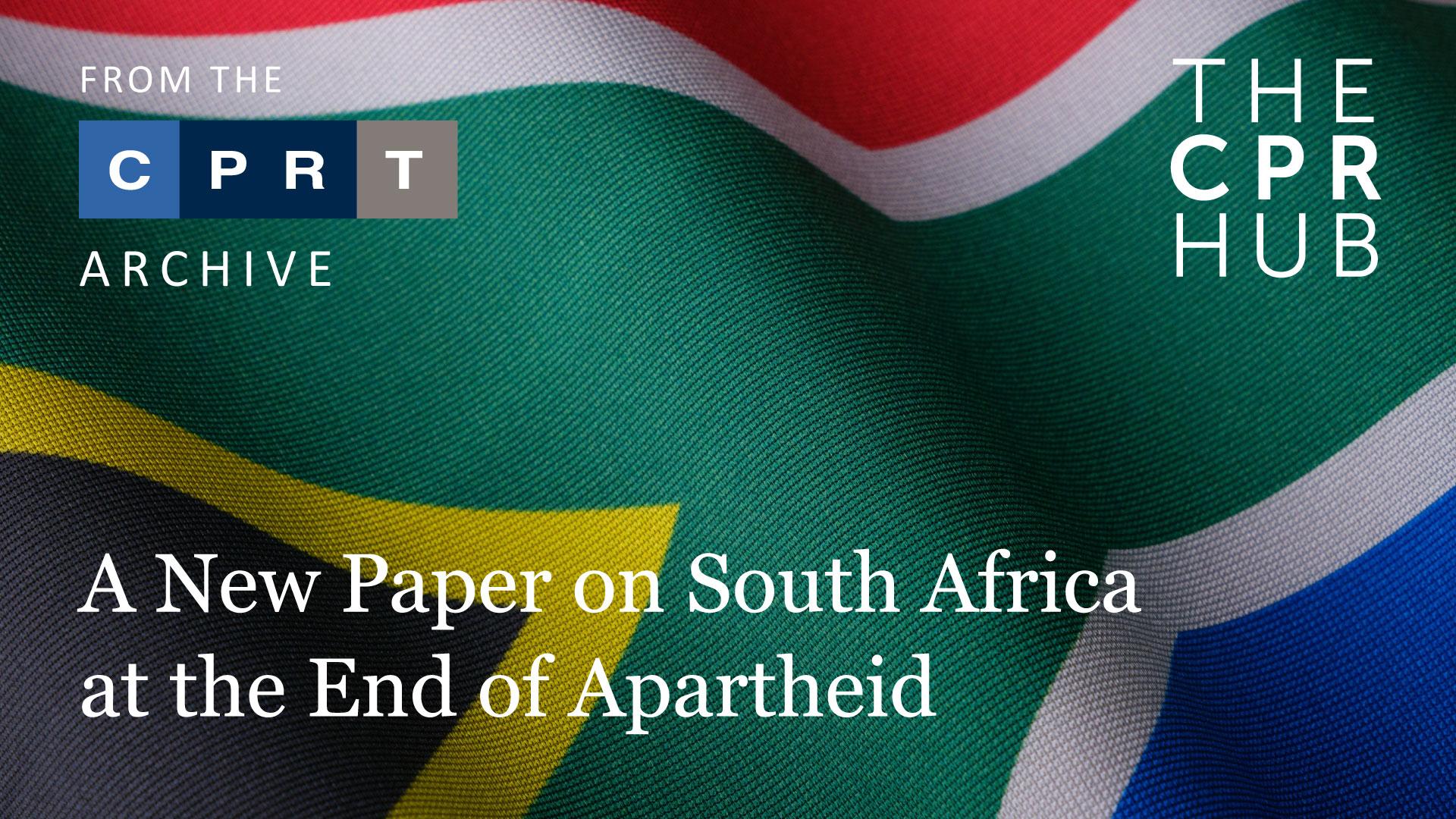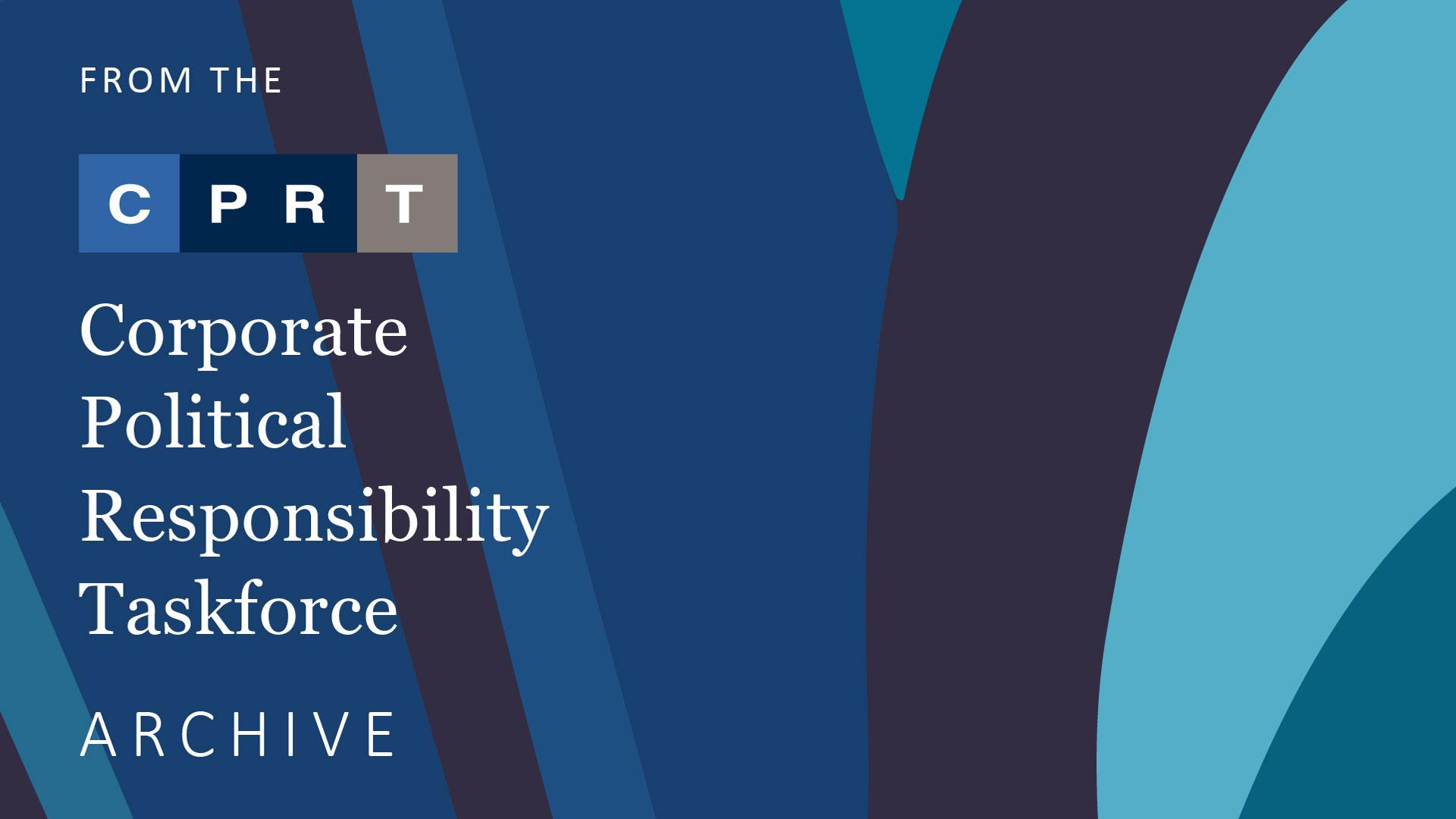Receive Updates from The CPR Hub
Learn about new tools, insights and events to help you consider how CPR can help your company, clients or members.






This report reveals a decline in trust, and how majorities now hold grievances against governments, business and the rich. Historically strong trust in “my employer” is complicated when employees hold grievances. Argues that business should respond in concert with other actors, investing in local communities, quality information, and job skills.
Explores the history, emotion, and power of effective argumentation to promote more constructive debates and mutual learning in America. Shares key principles, including removing the focus on winning, prioritizing relationships and engaged listening, considering context, embracing vulnerability, and creating space for transformation.
To rebuild election trust among conservative voters, this Johns Hopkins–R Street tool outlines three actionable principles: affirm past election integrity, increase process transparency, and improve election operations. It pairs these with Gallup-backed data to guide civic leaders—including business—on addressing doubts without heightening polarization.
Convergence Compass is an online learning program for business, government, higher education and civic actors that teaches the psychology of division, dialogue strategies, and collaborative problem-solving. Developed from the Convergence Center for Policy Resolution's innovative methods, it equips participants to build trust, bridge divides, engage constructively on contentious issues, design effective processes —even when stakeholders hold strongly divergent views.
This brief analyzes legal, political, and reputational pressures facing corporate diversity, equity, and inclusion (DEI) initiatives amid rising polarization and litigation risk. It outlines governance considerations, risk exposure, and communication strategies for companies navigating contested regulatory and political landscapes.
Paul Rosenburg interviews James Fishkin, the Janet M. Peck Chair in International Communication at Stanford University where he is Professor of Communication, Professor of Political Science (by courtesy) and Director of the Deliberative Democracy Lab. Fishkin recounts a wide range of real-world deliberation experiments—including on energy and climate—that achieved policy progress by integrating representative citizen groups, expert input, and structured facilitation. The interview outlines the design conditions for those breakthroughs, which can be a source of best practices for civil society organizations, and potentially, companies.
This article argues that US political risk is no longer an abstract concern for boards and investors – it is an immediate governance challenge. Specifically, it explores how escalating polarization, regulatory volatility, and election-related instability require enhanced governance safeguards to protect enterprise value – and proposes two tools that can help.
Why this resource matters
It outlines the rationale for embedding CPR in the governance of public affairs and recommends Third Side Strategies’ Principled Influence: A Guide to Strengthening Public Affairs Practices in Polarized Environments. (NOTE: This article is authored by Stephen M. Davis, a member of The CPR Hub’s Board of Advisors.)
Presents a framework for when companies should present forceful or tempered political positions based on their publicly stated values and materiality.
The article maps out a non-partisan, principled conception of good corporate citizenship drawing on shared assumptions of the right and the left about the place of corporations in our society and the realities of corporate governance. That conception concentrates on how corporations’ own conduct affects the best interests of their stockholders, workers, communities of operation, consumers, taxpayers, and the environment.
This article urges companies to actively reduce the polarization that can impact their businesses, by carefully considering their public stances, promoting inclusivity, and fostering collaboration across differing viewpoints within their organizations and communities.
Amid rising political backlash, most companies are recalibrating—not abandoning—their ESG and DEI agendas. This piece highlights a shift toward quieter, stakeholder-focused strategies rooted in authenticity, measurable impact, and alignment with business goals. It notes how terms like “ESG” are being replaced with less politicized language, and how scenario planning and coalition-building are helping leaders navigate polarized environments without losing credibility.
Eccles draws on a survey of 884 sustainability experts in 72 countries, which finds that NGOs’ go-to tactics—such as boycotts, litigation, and public shaming—are seen as low-impact and risk fueling backlash. It points instead to higher-leverage strategies like policy advocacy, education, and constructive engagement with skeptics as more effective paths forward.
This article explores how political identity is increasingly shaping workplace dynamics and offers a leadership strategy grounded in setting clear norms, proactively addressing tensions, and fostering inclusive dialogue—an approach aligned with Third Side principles of navigating conflict through shared understanding and long-term organizational strength.
This textbook section introduces major corporate and agency public-relations subfunctions: issues management, media and community relations, CSR and philanthropy, investor relations, marketing communications, government relations, lobbying, internal communication, crisis management, and more. It shows how communication, advocacy, and stakeholder engagement are structured inside organizations, shaping how they respond to risks, opportunities, and public scrutiny.
This series offers a retrospective on how rising political spending—especially via dark money and super PACs—is shaping public perceptions, fueling polarization, and undermining trust. It highlights record-breaking ad spending across TV and digital platforms and calls for stronger disclosure and enforcement to protect democratic integrity.
A crisis negotiations veteran explains how building rapport and trust help avert dangerous outcomes, even in very high threat situations. Includes firsthand experience to show how respect and listening can help save lives, and offers detailed suggestions for listening to understand underlying needs and interests.
This book shares the results of Diane Hessan's weekly interviews with 500 voters from every state, of every age and ethnicity, and along different points of the political spectrum. The topics ranged from race to guns, from character to party politics, from masks to rallies, from the Supreme Court to the pandemic to immigration and climate change. She finds that Americans have more common ground than they realize, but that they need new approaches to listening and understanding each other.
This academic article analyzes how political polarization affects corporate nonmarket strategies—such as lobbying, advocacy, and coalition-building—across different stages of the policy life cycle. It shows how polarization changes the risks and payoffs of engagement, complicating firms’ ability to influence policy without triggering backlash or strategic misalignment.
Patricia McLagan is an author, consultant, and business owner with fifty years’ experience supporting large scale change processes in business and governments globally. From 1983 through 2004, Pat consulted with major South African businesses, government entities, universities, and parastatals, and chaired the Desmond Tutu Peace Foundation after returning to the US. This article draws on her personal experience with South African businesses and government entities from 1983 into the 2010s, focusing on what some white South African business leaders did in a time of polarization and potential civil war.
Housed in Duke’s Fuqua School of Business, is an initiative to explore the role business can play to reduce polarization and improve civic dialogue. Their website offers research and data on dialogue and engagement, showcases corporate initiatives that build common purpose, features news and business leaders’ perspectives, and hosts events to equip current and future leaders to navigate polarization and foster constructive conversations.
Advances the argument that American CEOs, seemingly more powerful today than ever, have abrogated the key leadership role they once played in addressing national challenges, with grave consequences for American society.
This report based on extensive empirical research shows that, while political extremes dominate public discourse, most Americans belong to an “Exhausted Majority” who feel overlooked and frustrated by polarization. It underscores the need to elevate voices that champion trust, empathy, and shared values.
Based on interviews with more than 23,000 citizens across 31 countries, Ipsos finds persistent public distrust in elites, globalization, and economic systems—driving polarization across both advanced and emerging economies. These trends underscore the need for companies to account for public sentiment and political division when shaping public affairs strategies and stakeholder engagement, especially in regions where legitimacy and trust are increasingly strained.
Data analysis shows that voters labeled as moderates, independents, or undecided hold diverse and often conflicting views, undermining the idea of a unified “moderate middle” in today’s polarized political landscape.
This continuing education online course by The Laboratory for the American Conversation is designed to help you understand how to have contentious conversations that don't escalate into the culture wars that have become all too common. You can apply this in your workplace and with family and friends.
Allstate’s 2025 research finds that trust in America is at a tipping point. While only 41% of Americans trust people across the U.S., the majority remain optimistic about their communities. The report emphasizes that rebuilding trust starts locally through engagement, leadership, and connection, and offers a three-part strategy: fostering interpersonal trust, investing in community leadership, and scaling trust-building efforts to strengthen democracy and economic resilience
Interviews with 48 Americans from across ideological and demographic groups reveal broad commonality in wanting fairness and clear expectations of government—such as equal rule enforcement, responsive leadership, transparent decision-making, and dignified public services. At the same time, people diverge on what constitutes fairness, with some emphasizing opportunity, others consistent process, and others tangible outcomes that prove fairness is real. Provides a starting point for stakeholder engagement, and suggests approaches that speak to concerns across the political spectrum.
This nonpartisan initiative aims to translate publicly available government data into clear, accessible insights on a variety of topics, including the economy, health, education, and government spending. By presenting information without spin, it aims to empower citizens, policymakers, and businesses to form their own conclusions, supporting the “third side” in polarized debates.
This guidance helps leaders decide when to engage—or refrain—from responding to controversial social and political issues at work. It offers a framework for assessing relevance, risk, and responsibility, emphasizing the importance of consistency, listening, and clarity to avoid internal polarization while maintaining trust and organizational cohesion.
Emerging student groups at UC Berkeley are creating spaces fostering respectful connection across political divides by promoting civil discourse, hosting open debates, and offering courses that equip students with skills to engage diverse perspectives—grounded in the belief that seeking knowledge is the primary mission.
Learn about new tools, insights and events to help you consider how CPR can help your company, clients or members.
